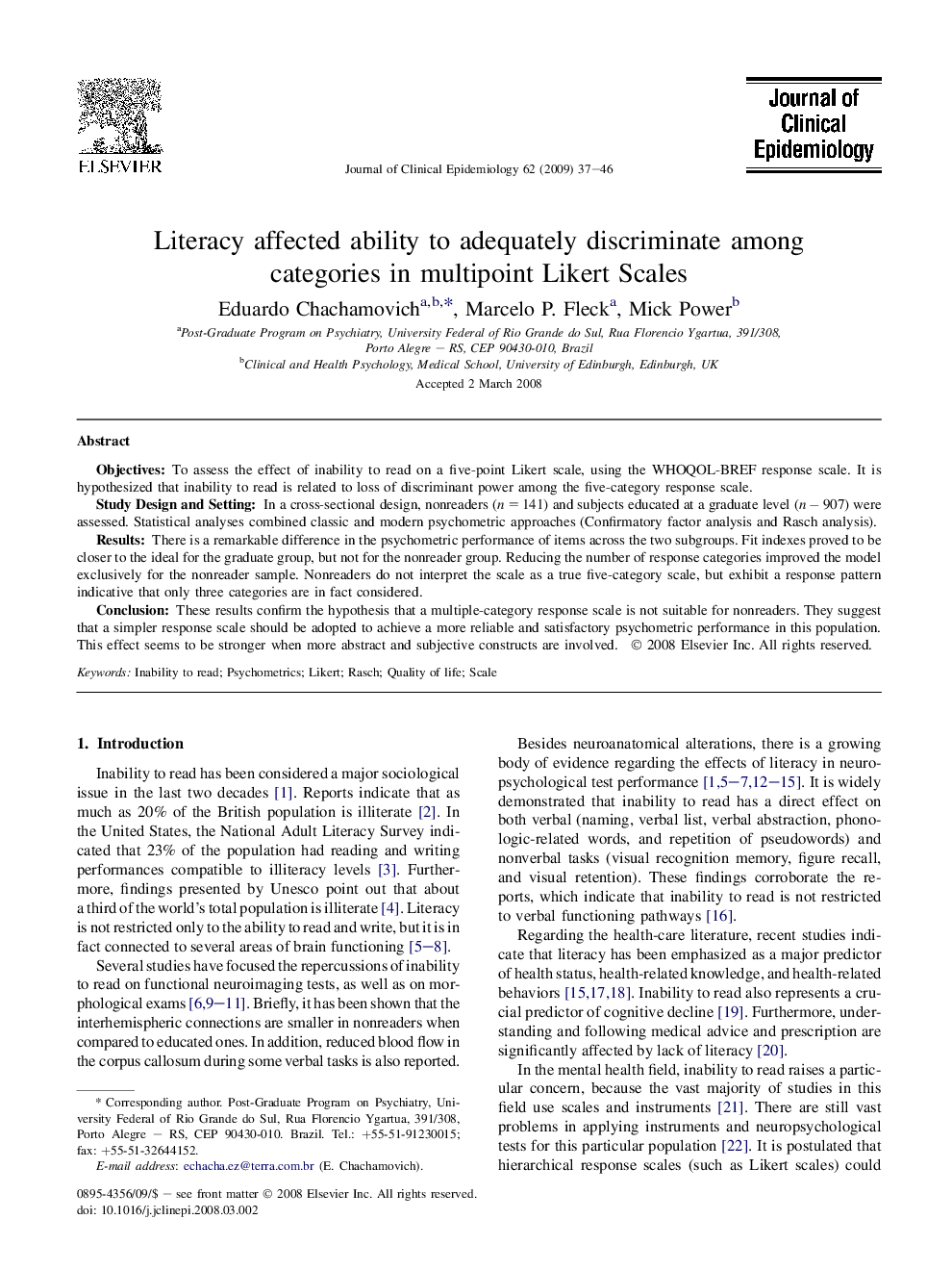| Article ID | Journal | Published Year | Pages | File Type |
|---|---|---|---|---|
| 1083742 | Journal of Clinical Epidemiology | 2009 | 10 Pages |
ObjectivesTo assess the effect of inability to read on a five-point Likert scale, using the WHOQOL-BREF response scale. It is hypothesized that inability to read is related to loss of discriminant power among the five-category response scale.Study Design and SettingIn a cross-sectional design, nonreaders (n = 141) and subjects educated at a graduate level (n − 907) were assessed. Statistical analyses combined classic and modern psychometric approaches (Confirmatory factor analysis and Rasch analysis).ResultsThere is a remarkable difference in the psychometric performance of items across the two subgroups. Fit indexes proved to be closer to the ideal for the graduate group, but not for the nonreader group. Reducing the number of response categories improved the model exclusively for the nonreader sample. Nonreaders do not interpret the scale as a true five-category scale, but exhibit a response pattern indicative that only three categories are in fact considered.ConclusionThese results confirm the hypothesis that a multiple-category response scale is not suitable for nonreaders. They suggest that a simpler response scale should be adopted to achieve a more reliable and satisfactory psychometric performance in this population. This effect seems to be stronger when more abstract and subjective constructs are involved.
